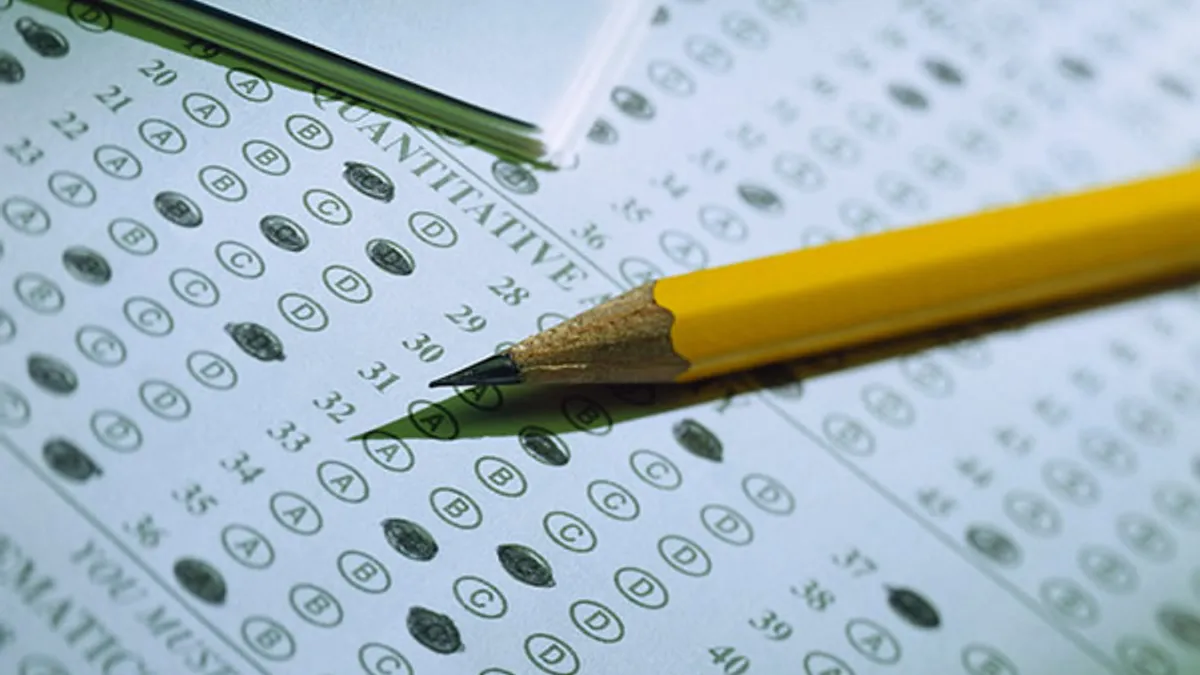Dive Brief:
- Louisiana students who attended their first-choice private school as part of the state’s voucher program have lower test scores — especially in math— after four years than those who didn’t get their preferred school or didn’t receive a voucher, according to a new paper from researchers at the University of Arkansas.
- The findings, which focus on a sample of 780 students in grades 3-8, show a different pattern from the researchers’ earlier work to measure academic outcomes among students in the Louisiana Scholarship Program (LSP), which began as a New Orleans pilot and expanded statewide in 2012. In the first year, they found large declines in math and English language arts scores on state assessments, but then saw improvements in Years 2 and 3.
- The performance drop was less pronounced among African-American students, the authors write, noting it could “reflect a lack of alignment of private school curricula with the Louisiana state standards rather than true negative impacts of LSP schools on student achievement.” They also found many private schools in the first-choice group faced later sanctions from the state, mostly for poor performance among voucher students, which could suggest “the private schools opting to participate in the LSP were simply not prepared to meet the educational needs of large numbers of these students transferring into their schools all at once.”
Dive Insight:
With U.S. Secretary of Education Betsy DeVos pushing for a $5 billion tax credit program that would allow states to expand school choice models, including vouchers for private schools, interest in the performance of existing scholarship programs is likely to increase. The Tennessee House of Representatives this week also passed a bill that would create an education savings account program serving up to 5,000 students in the state’s urban areas. The Senate, where a committee approved a similar bill, will now take up the issue.
Evaluations of other voucher initiatives — those in Ohio, the District of Columbia and Indiana — have also found disappointing results among students. “If the four studies suggest anything, it’s that private schools have no secret key that unlocks educational potential,” wrote Mark Dynarski and Austin Nichols in this piece for the Brookings Institution. More recent research on the Indiana voucher program also showed declining scores in math, but not in English language arts.
One factor, Dynarski and Nichols write, could be how states are implementing their accountability systems. In their paper on the LSP, Jonathan Mills and Patrick Wolf note that the improvement in test scores among voucher recipients in the third year could have been due in part to the state education agency holding schools “blameless for their students' performance” during a transition to new assessments. In the fourth year, however, the tests were again high-stakes exams for public school and LSP students.
Dynarski and Nichols also write that researchers — and perhaps the public — should look beyond test scores and consider long-term outcomes when passing judgment on voucher programs. “It means waiting longer for answers, but the value of knowing the answers is clear,” they write. A separate paper on LSP, also from the University of Arkansas researchers, shows that students who attended their first-choice private school were just as likely to attend college as those in the control group.













